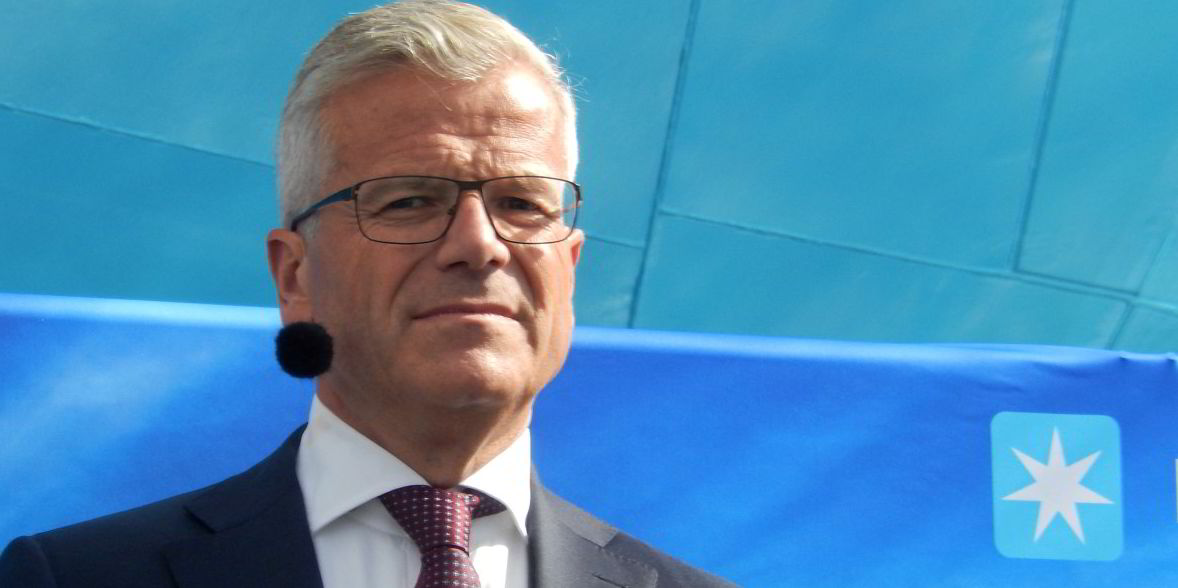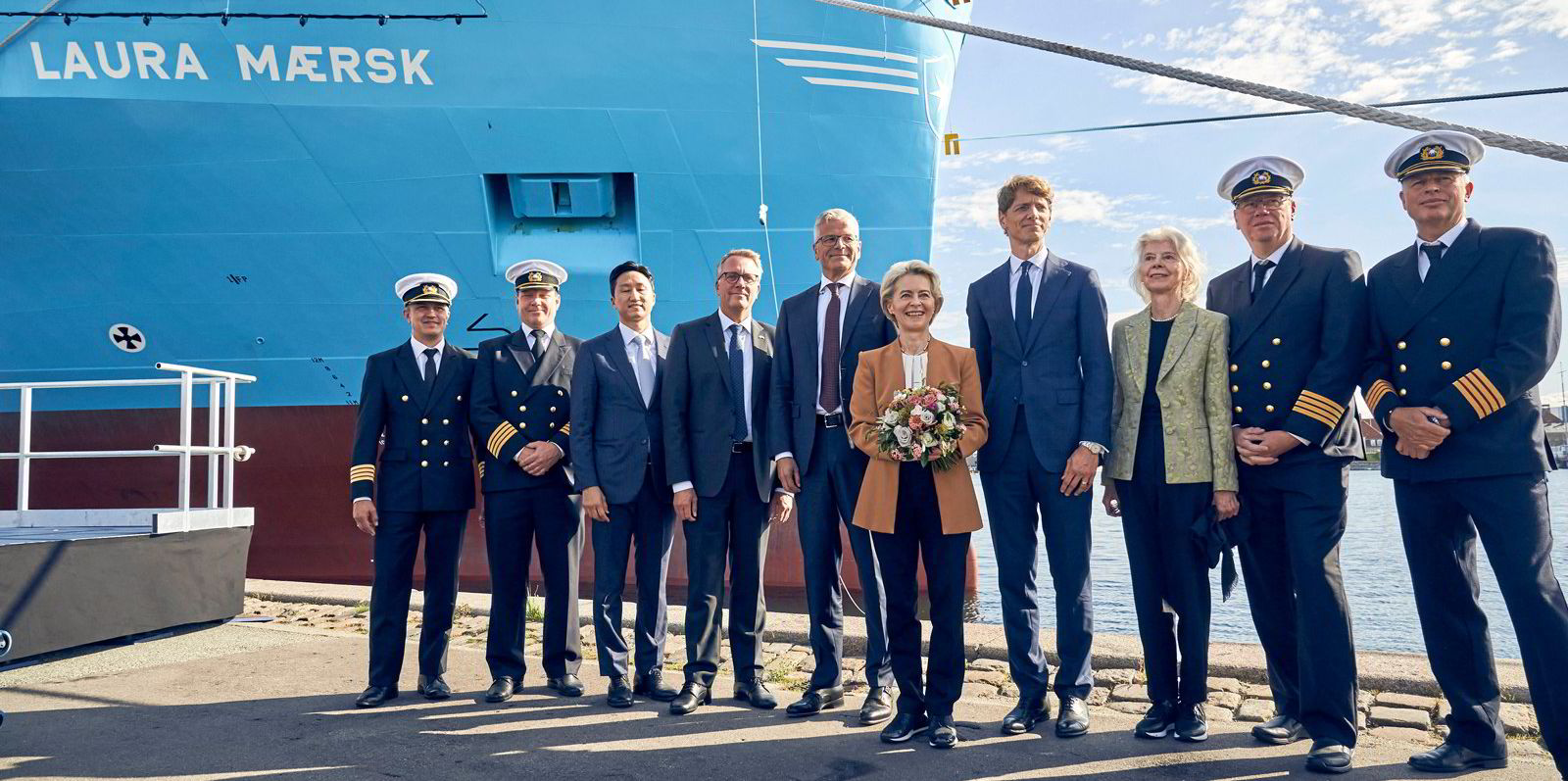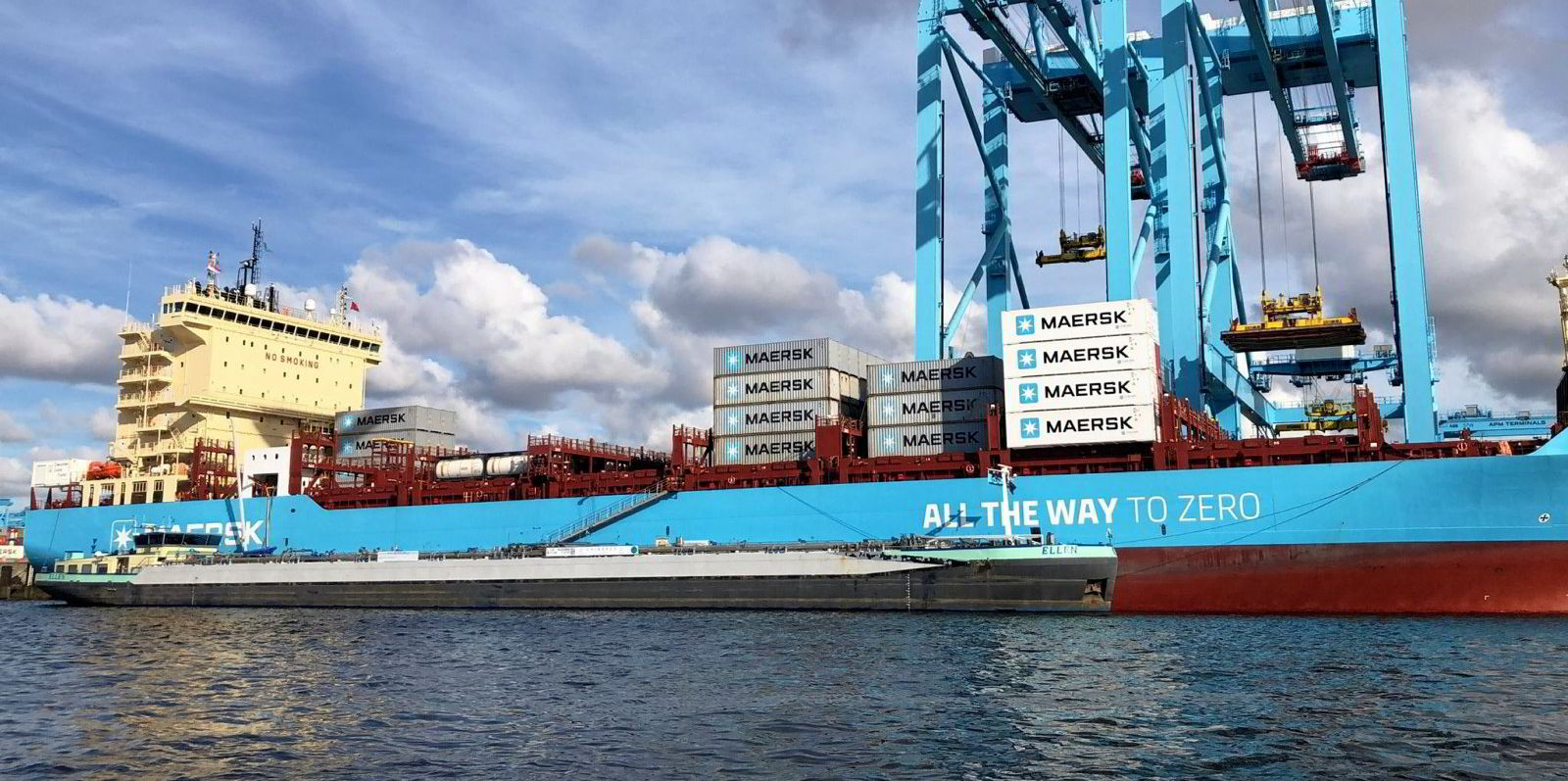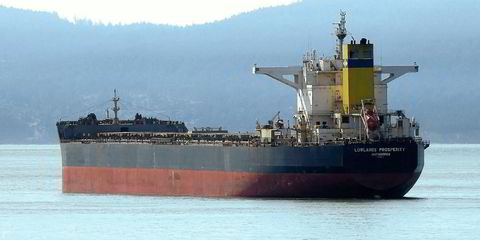AP Moller-Maersk chief executive Vincent Clerc talked of “an important turning point” as he directed attention towards the first methanol-powered container ship.
“This is what the energy transition looks like,” he said, pointing to the 2,100-teu Laura Maersk (built 2023) in Copenhagen last week.
“This is probably in shipping terms the biggest equivalent of an influencer on social media you would ever find,” he said.
Speaking after the vessel had been christened by European Commission president Ursula von der Leyen on 14 September, Clerc could not hide his pride.
Maersk has been a pioneer of methanol in container shipping, and there are now some 125 dual-fuel methanol-powered boxships on order by different liner companies.
The orders have been placed despite growing awareness of the limitations of green methanol, which remains in short supply and expensive.
Some even question how truly green the methanol-backed technology is. Take the Laura Maersk, which has “All the way to Zero” emblazoned across its hull.
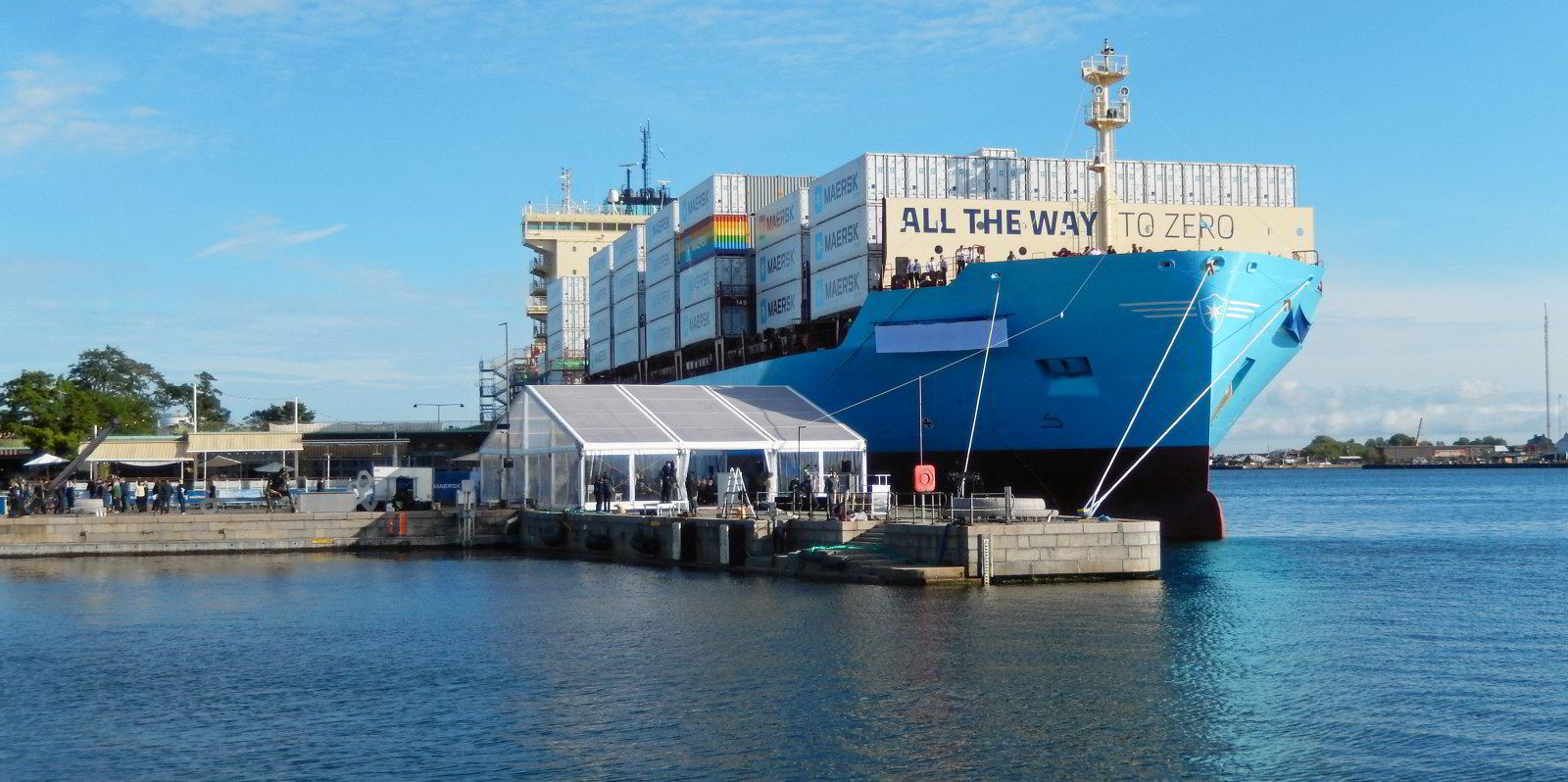
In fact, the ship has so far only reduced greenhouse gases by 65% compared to conventional fuel, still a long way short of Maersk’s goal of a 95% reduction.
The shortfall was due to the need to ship green methanol from the production site in the US to bunker ports around the world.
A costly adventure?
Is there then a danger, TradeWinds asked, that Maersk is leading the shipping industry on a costly green methanol adventure that will not truly decarbonise shipping?
“Whatever way you look at it, the carbon intensity of the impact on the environment that that ship has is minimal compared to any other ship sailing today,” Clerc said.
“So in terms of that being a wrong route, I think that you can probably discount in terms of risk.”
Clerc appears keen not to let the great get in the way of the good. Maersk’s announcement this week of an alliance with French liner operator CMA CGM points to the scale of its ambition on decarbonisation.
But he said the company had pioneered green methanol “not because it is the perfect solution, but because it is the solution that is available today”.
But Maersk was “fuel agnostic”, and if at some point there emerges a fuel that is so much better, there was the option of retrofit ships, he said.
Much of Maersk’s fleet is expected to transition by way of green retrofits.
Leonardo Sonzio, head of fleet management and technology at Maersk, said the company has already committed to the first-ever methanol conversion, comprising one of its 14,000-teu H-class vessels.
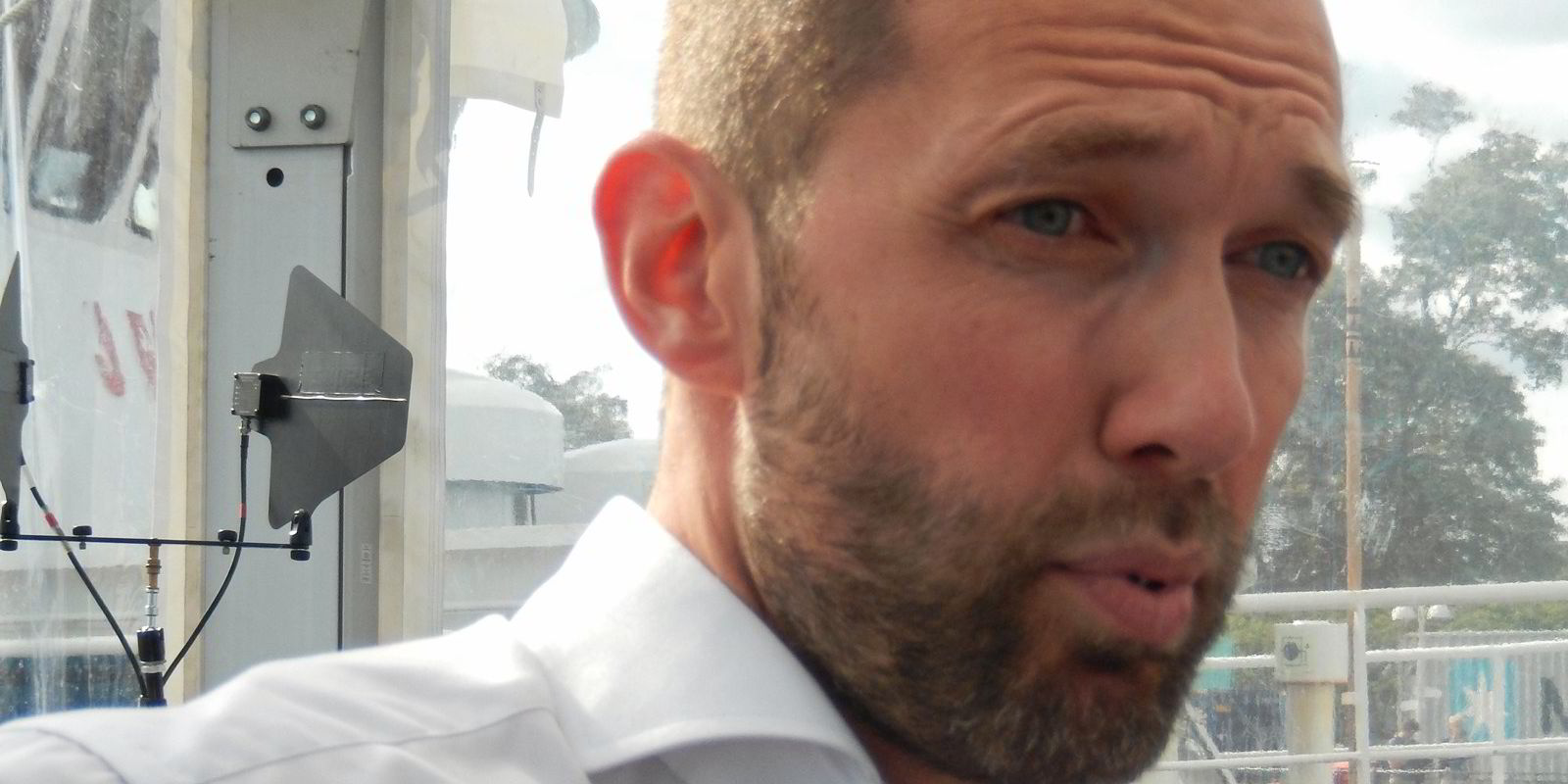
Clerc believes it is very probable that another technology will emerge in the next few years, likely hydrogen or ammonia, that will actually take the next leg of the transformation.
“But this [methanol] is the solution that we have today and how we can move towards this,” he said.
He added that if there is a more economic or scalable solution in future, “then we will switch to that and we will have part of the fleet running on methanol and part of the fleet on that other technology”.
“All of that [technology] will co-exist and bring us down to zero,” he said.
For Clerc, there is a sense of urgency about the green transition.
“The worst thing that can happen is paralysis, waiting for something and you completely miss the boat on what climate change is really about,” he said.
But Maersk appears to be hedging its bets, leaving its options open for fuelling of future vessels. The company is not going all-in on methanol, but on 25 ships at present.
“There may be a few more that come with methanol, then we will have to reassess whether there is another technology that will power the rest of the transition,” he said.
“We operate 750 ships. It is certainly not a decision to have all run on methanol, so we will also have different energy solutions co-exist in the market.”
But Maersk has the next 17 years to hit its goal of reaching zero carbon by 2040. By 2030,the company plans to have 25% of its shipments already transitioned to net zero.
“The targets set are ambitious, but obtainable,” Clerc said. “It is up to us now to take the decision that we need to take.”
